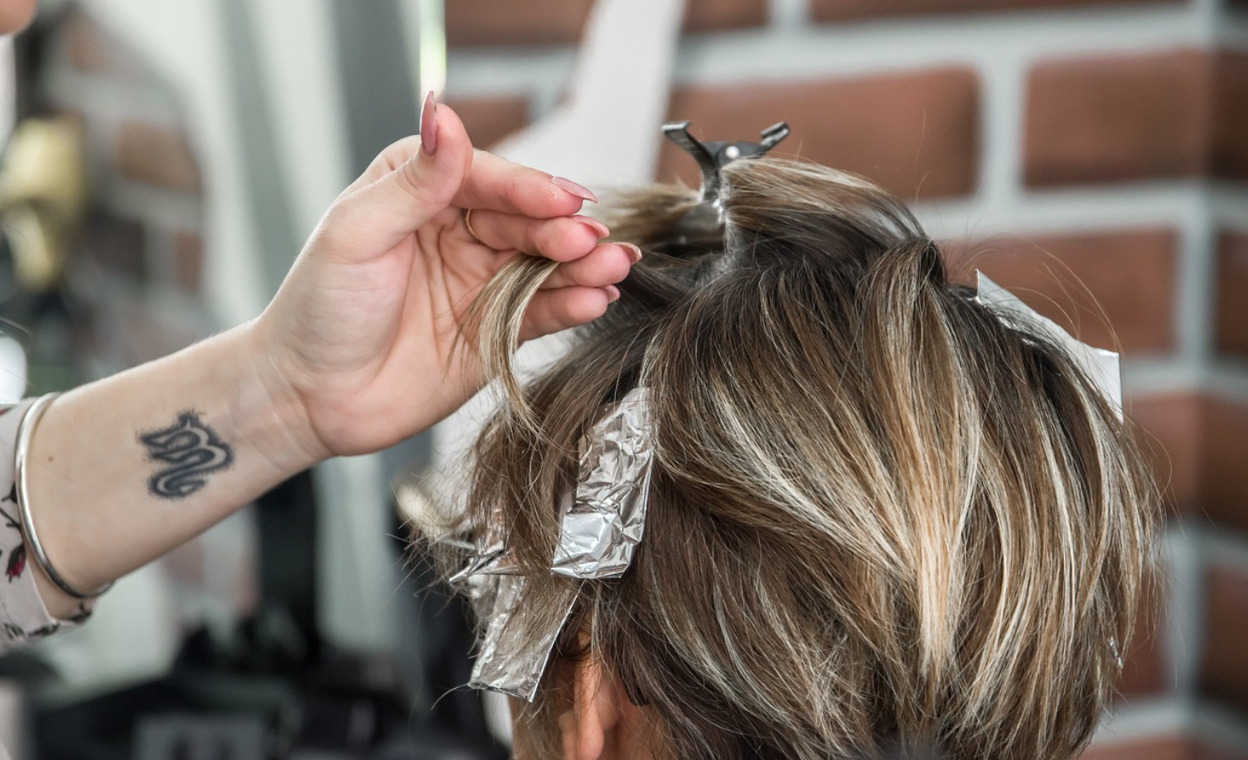Black Seed Oil vs Coconut Oil for Hair Growth: Reviews, Side Effects, Before & After
BY TRYBELLO
Nov 25, 2025

Key Takeaways
- Black seed oil helps support scalp health, natural hair cycles, follicle function, and reduces inflammation, while coconut oil strengthens and protects existing hair.
- Black seed oil’s active compounds, including thymoquinone, essential fatty acids, vitamins, and minerals, nourish follicles and improve hair resilience.
- Coconut oil penetrates the hair shaft to prevent protein loss, smooths cuticles, and provides antioxidant and antimicrobial protection for healthier, stronger hair.
- Choosing the right oil depends on your main concern: black seed oil for thinning or shedding, coconut oil for damage and breakage; combining both often yields the best results.
- For a complete hair care routine, pairing natural oils with Trybello Hair Helper Spray Plus enhances density, strengthens strands, supports scalp health, and accelerates visible improvements.
Why Black Seed Oil and Coconut Oil Are Hair Growth Powerhouses
For healthy, lustrous hair, natural remedies like black seed oil and coconut oil have become go-to solutions. Backed by traditional use and growing scientific evidence, these oils support hair growth and overall scalp health.
Black seed oil, from Nigella sativa, contains thymoquinone, which helps address hair loss at its hormonal and inflammatory roots. Coconut oil’s fatty acids penetrate the hair shaft, preventing protein loss and protecting against damage.
Rather than choosing one over the other, the right oil or combination depends on your hair needs. Black seed oil can help regulate the hair growth cycle, while coconut oil strengthens and protects hair, making them complementary allies for healthier, fuller hair.
“Doctor-Approved Natural Spray Rapidly Boosts Growth & Thickness.
Why 100,000+ Women Are Switching to Trybello!"
Join over 100,000 happy customers who've transformed their hair with our doctor-formulated spray in just 12 weeks, rated 4.8/5 by 40,000+ real users.
Proven Natural Ingredients
- • Caffeine Extract – Blocks DHT and boosts blood flow to follicles
- • Biotin – Direct scalp absorption, no pills needed
- • Castor Oil – Soothes inflammation and locks in moisture
- • Rice Water Extract – Strengthens hair and reduces shedding
120-Day Growth Guarantee: No results? 100% money back, no questions asked.
Black Seed Oil: Nature's Hair Growth Solution
Black seed oil, derived from Nigella sativa seeds, has been used for centuries for its medicinal properties. Today, it’s gaining recognition for supporting hair growth at the root level. Unlike treatments that only improve appearance temporarily, black seed oil works on the biochemical processes that drive healthy hair.
Its active compounds, including thymoquinone, essential fatty acids, vitamins, and minerals, nourish the scalp and hair follicles. Black seed oil addresses inflammation, hormonal imbalances, and oxidative stress, helping reduce shedding while improving hair texture, scalp health, and resilience.
Key Benefits:
- Reduces inflammation and calms the scalp
- Improves blood circulation to follicles
- Provides antimicrobial protection
- Balances oil production
- Guards against environmental damage
How to Apply:
Warm 2–3 tablespoons, massage into the scalp for 5–10 minutes, and leave for 30 minutes or overnight. Apply 2–3 times weekly. Mixing with a carrier oil like jojoba or using a warm towel method can enhance absorption.
What to Expect Before and After
Setting realistic expectations is essential when using any natural hair treatment. With black seed oil, most users notice reduced scalp inflammation and improved shine within the first 2-3 weeks of regular use. One study found that in patients treated with Nigella sativa oil, 70% showed notable improvements in density and thickness after 3–6 months, along with decreased scalp inflammation.
Potential Side Effects of Black Seed Oil
Black seed oil is generally safe, but some people may experience mild irritation, such as redness, itching, or a warming sensation. A patch test applying a small amount behind the ear or on the inner wrist for 24 hours is recommended before full scalp use.
The oil’s strong, slightly bitter aroma may be off-putting for some. Diluting with a carrier oil or adding a few drops of essential oils like lavender can help.
Allergic Reactions: True allergies are rare but possible, especially in those sensitive to plants in the Ranunculaceae family. Symptoms may include hives, swelling, or difficulty breathing. Discontinue use immediately if this occurs and seek medical advice.
Who Should Be Cautious:
- Pregnant or breastfeeding women should consult a healthcare provider.
- People on blood pressure, diabetes, or blood-thinning medications should seek advice.
- Those with bleeding disorders or scheduled surgery should avoid use at least two weeks prior.
- Individuals with very low blood pressure may want to consider alternatives.
With proper precautions and consistent, careful use, most users can safely enjoy the hair growth benefits of black seed oil.
Coconut Oil: The Time-Tested Hair Treatment
Coconut oil has long been valued across tropical cultures for its ability to protect and strengthen hair from within. Unlike oils that simply coat strands, its unique molecular structure penetrates the hair shaft, preventing damage before it occurs. It contains lauric acid, which makes up nearly 50% of its fatty acids, allowing it to bind to hair proteins and reduce protein loss during washing and styling. Coconut oil also provides antioxidant protection with vitamin E and combats dandruff and other scalp issues with its antimicrobial properties. From pre-shampoo treatments to overnight masks, coconut oil adapts to different hair needs while consistently moisturizing and strengthening.

Coconut oil in dropper bottle with fresh coconuts
Why Lauric Acid Makes Coconut Oil Special
Lauric acid penetrates deeply into the hair shaft, protecting the inner structure of hair and preserving protein during grooming. Its antimicrobial effects help maintain a healthy scalp, reducing conditions like dandruff and creating an environment that supports stronger, more resilient hair.
How Coconut Oil Strengthens and Protects Hair
Coconut oil helps reduce the swelling and contracting of hair caused by washing, forms a protective barrier against heat styling and environmental stress, improves elasticity to prevent breakage, and smooths cuticles to temporarily seal split ends, making hair appear healthier while reducing further damage.
Best Application Methods
For fine hair, use a pea-sized amount on mid-lengths and ends, avoiding the roots. Medium to thick hair benefits from a pre-wash treatment of 1–2 tablespoons on dry hair, focusing on damaged areas for 30 minutes before shampooing. Curly or coily hair can use coconut oil as an overnight deep treatment, applying generously from roots to ends and covering with a shower cap. Those with dandruff or dry scalp can apply warmed oil directly to the scalp, massaging for 5–10 minutes before leaving it on for at least an hour. Warming the oil between your palms ensures even distribution and avoids pulling or breaking hair strands.
Before and After: Realistic Results Timeline
Many users notice improved shine and manageability after the first use. By two weeks, frizz is reduced and detangling becomes easier, with less breakage appearing around four to six weeks. Long-term use over three months can help maintain length by protecting the ends, though coconut oil does not directly stimulate hair growth from the follicles like black seed oil.
Coconut Oil Drawbacks to Consider
While coconut oil offers many benefits for hair, it’s necessary to note its potential drawbacks to ensure the best results for your hair type.
Heavy Buildup Issues for Fine Hair
Coconut oil isn’t ideal for all hair types. Fine, low-porosity hair may struggle to absorb it, leaving a greasy, heavy residue that attracts dirt and dulls hair. Using small amounts on the ends, diluting with a lighter oil, or limiting application to once weekly with thorough shampooing can help manage this.
Protein Sensitivity Concerns
Some people experience protein sensitivity, where hair feels stiff, brittle, and straw-like after coconut oil use. This happens when protein levels in the hair become unbalanced, leading to breakage and dryness. If this occurs, stop using coconut oil and focus on moisture-rich treatments until hair regains softness and elasticity.
Specialist-reviewed insights
Black Seed Oil:
A summary on Healthline states that black seed oil “has a number of characteristics that potentially give it a place in the treatment or relief of a number of conditions, including hair-scalp health.
In an article for InStyle, nutritionist VJ Hamilton notes that black seed oil is helpful in inflammatory hair-loss conditions because of its anti-histamine and anti-inflammatory effects.

Black seed oil helps support a balanced scalp environment for healthy-looking roots.
From a review on the site of the Wimpole Clinic, black seed oil was shown in one small study to improve density and scalp inflammation in around 70 % of participants with telogen effluvium.
Coconut Oil:
A trichologist quoted in an article by T3 states, “Coconut oil helps reduce protein loss in all hair types. It is also rich in lauric acid and can penetrate the hair shaft and can act as a daily conditioner.”
In a piece in Men’s Health, certified trichologist Penny James says, “Using coconut oil can also decrease the appearance of frizz, it will give the hair a lovely shine and hydrate [the] hair shaft and close the cuticles.”
Head-to-Head Comparison: Which Oil Wins?
Choosing the right oil depends on your hair goals and type, as black seed oil and coconut oil offer complementary benefits.
Black seed oil is ideal for promoting new growth and targeting thinning areas, as it helps reduce inflammation and may modulate hormonal factors at the scalp and follicle level. Coconut oil, on the other hand, excels at protecting existing hair, preventing breakage, split ends, and damage.
Coconut oil works best on medium to thick, high-porosity hair, while black seed oil’s benefits focus more on scalp health than texture. Curly and coily hair types often see the best results by combining both oils, black seed oil on the scalp and coconut oil on the lengths. Those with oily scalps and dry ends may dilute black seed oil for scalp use and apply coconut oil only to damaged areas.
Black seed oil typically requires consistent use to impact hair growth, with visible improvements in density. Coconut oil provides immediate benefits in reducing protein loss and improving texture from the first application. For a comprehensive hair care routine, many users combine both oils to target growth and protect existing hair simultaneously.
Table: Key Benefits, Uses, and Considerations of Black Seed Oil vs. Coconut Oil
| Aspect | Black Seed Oil | Coconut Oil |
|---|---|---|
| Primary Benefit | Supports new hair growth by targeting scalp and follicles, reducing inflammation, and balancing hormones | Strengthens and protects existing hair, reduces protein loss, and improves texture |
| Active Compounds | Thymoquinone, essential fatty acids, vitamins, minerals | Lauric acid (~50%), medium-chain fatty acids, vitamin E, antimicrobial compounds |
| Best For | Thinning hair, hair loss due to stress or hormonal factors | Breakage, split ends, dry or damaged hair, medium to thick high-porosity strands |
| Application | Massage 2–3 tbsp into scalp 2–3 times weekly for 8–12 weeks; can mix with carrier oil or use warm towel method | Pre-wash, leave-in, or overnight treatment; fine hair uses small amount on ends; curly/coily hair can apply generously from roots to ends |
| Timeline for Results | Reduced shedding in 4–6 weeks; visible new growth in 8–12 weeks; full results in 3–6 months | Immediate improvements in texture; reduced frizz and breakage in 2–6 weeks; long-term protection over 3+ months |
| Potential Side Effects | Mild scalp irritation, rare allergic reactions, caution for pregnant/breastfeeding women and people on certain medications | Buildup on fine hair, potential protein sensitivity, may require careful application for some hair types |
How to Choose the Right Oil for Your Hair Goals
Choosing the right oil depends on your main hair concern. If thinning, shedding, or slow growth is the issue, black seed oil is ideal for supporting scalp health and the hair growth cycle. For damage, breakage, or dryness, coconut oil strengthens and protects the hair shaft. Many users get the best results by combining both, targeting different aspects of hair health simultaneously.
Hair type and texture also matter. Fine, straight hair benefits from smaller, less frequent applications to avoid heaviness, while thick or curly hair can handle more product and frequent use. Lifestyle plays a role too, overnight treatments may suit active schedules, while shorter, frequent applications work for busy routines. Start with once-weekly use and adjust gradually to find the best routine for your hair.
Unlock Fuller, Healthier Hair with Trybello Hair Helper Spray Plus
Improve your hair care routine with the upgraded Trybello Hair Helper Spray Plus. Engineered for visible results and backed by a risk‑free guarantee, this advanced formula combines science and natural actives to support healthier, thicker hair.
The spray features the clinically‑studied Capixyl™ complex, which helps reduce DHT levels and stimulate dormant follicles for denser, stronger hair. Caffeine and biotin work together to nourish the scalp, improve circulation, and enhance hair thickness all without silicones, parabens, or hormones.
Key Benefits:
- Promotes visible hair density and thickness
- Strengthens hair from root to tip
- Supports scalp health and reduces shedding
- Safe, clean formula free from harsh chemicals
How to Use: Apply directly to the scalp once or twice daily. Leave on for 30 minutes or overnight for maximum absorption. Many users notice meaningful improvement in as little as four weeks.

Trybello supports fuller-looking, healthier hair from the scalp up.
Backed by a 120‑day Growth Guarantee, Trybello lets you track your progress with simple photo updates. If you don’t see visible results, you get your money back.
For the ultimate hair care routine, pairing Hair Helper Spray Plus with natural oils like black seed oil or coconut oil provides comprehensive support, strengthening, protecting, and promoting growth across the entire hair shaft.
Your hair transformation is a spray away with Trybello!
Frequently Asked Questions (FAQs)
Trending Topics
See our latests posts #TRYBELLO












